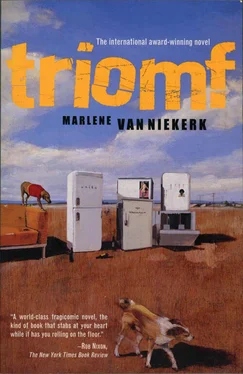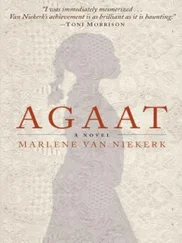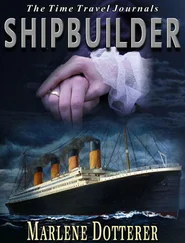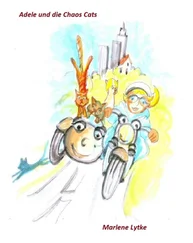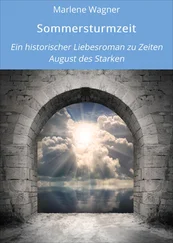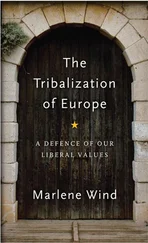Lambert’s clever. He first takes out the mousetrap. Then he pisses into the postbox. When he’s finished pissing, he puts the trap back again. He doesn’t let people fuck with him. Now Mister Reservist can read piss-letters until the day he dies. And he gets a lot of letters, too. From Absa and Sanlam and the Bible Society and the AA and Readers Digest. Serves him right. And the police must also watch out, discretion and all. Treppie read him a story the other day about two policemen from Triomf who raped a woman at Johan Coetzee police station. De Bruin and Visagie. Lambert still wants to find out where in Triomf De Bruin and Visagie live. And that clever-arse traffic cop at number 101, who races up and down Martha Street on his motorbike must watch out too. A person’s life is in danger around here. The place is full of dogs and things. He can just see an accident happening.
When the police themselves become a danger to society, then you know something’s wrong.
So he patrols. Somebody has to do it.
When he walks up and down the streets of Triomf at night, with his stick and his gun safely in his belt, he feels like he was born to patrol. He feels sharp. The kind of person other people can rely on. And he checks out everything, even the stuff that looks okay. It’s when things don’t look different that you drop your guard. So he checks, not only inside all the windows, to make sure that every mother and father, grandma and grandpa, child and grandchild, brother-in-law and step-sister, what have you, is sitting nicely at the TV and watching the news; and not only that all the front gates and the driveways and the car windows are closed, and that the number plates are still on. He also checks the things no one else ever looks at, the things that tell you straight away when something’s wrong. Like the stop signs. He checks to see if they’re the right colour and the right height, and if they’re standing on the right side of the road; and he checks the streets’ name-plates, to make sure they’re the same as the names on the kerb, and that they point in the right direction; and the streetlights, to make sure they’re all switched on; the telephone wires, to see that they’re still nicely connected; and the manholes, whether their lids fit the holes nicely. Nowadays the kaffirs even steal manhole covers and sell them for scrap iron. Ten rand apiece. Treppie says it’s to keep the balance in the New South Africa, ’cause for a long time now the antiquarians have been stealing pressed metal ceilings from old houses, to sell on the black market.
So he also tries to check if all the houses still have their ceilings, although Triomf’s houses have only pressed cardboard. And he looks inside the rubbish bins, to make sure they’ve got the kind of rubbish they’re supposed to have: old bread and newspapers and rotten vegetables and stuff, not heads or cats or babies. People throw away the funniest things nowadays.
He checks the green fuse boxes on the pavements to see if their little doors are closed, and to make sure no loose wires stick out or lie around. Treppie says people siphon off electricity illegally, but no one ever gets caught. Triomf’s a closed shop, a law unto itself, he says. Not if he, Lambert, can help it. He’s going to check out this closed shop very carefully to see what openings he can find.
And with his sharp eye he sometimes sees things he’s sure no one else ever sees. Things on the ground and things in the air. On the ground, it’s mostly bugs and funny little creatures that come out of their little holes. He once spent the whole night on the veld across the road from Shoprite, at that bus stop in front of the police flats, watching with his torch how termites come pouring out of their holes after the rain. They just kept coming, in a never-ending line, like someone was pulling them out from above on a string. Then they broke loose and swarmed up into the sky. Some of them fell down and died. Moles also do their pushing at night. Rats too. The rats are breeding like mad in the drains. That’s where they live. They go ‘trrrips!’ one after another through the gaps in the pavement, down into their holes. Like someone’s reeling them in by their noses, downwards.
He once saw a baboon-spider walking across the street. It was as big as his fist, with legs that moved on their own, as if they were tied to separate threads. That was at the end of Martha Street, on the koppie-side. You see some interesting things on that side. Rabbits with eyes like reflectors, who feed in the beds at the Centenary Old Age Resort. Once he even saw a little buck, and often he sees owls. That’s when he realised there was more to Jo’burg than met the eye. And he’s glad that he sees all these things. It feels like he’s got secrets that are his only. But when he sometimes tells his folks a little something, they just laugh at him. Then they say he’s having them on.
Treppie says if there were just one wild buck left in Jo’burg, it would be worth saving from fire and brimstone, but there obviously isn’t. He says all he can hear in Jo’burg are sirens and gunshots. All he can see are things that burn. And all he can smell is blood and iron. He says Jo’burg’s like a massive big iron dinosaur devouring itself, tail first, screws and brackets flying through the air.
Then his mother asks Treppie where he sees this ugly monster, and Treppie says if she’d just use her eyes like the good Lord Jesus intended her to, she wouldn’t be able to miss it. And then his mother spends the whole day waiting for the dinosaur to pop out somewhere. Behind the Hillbrow tower; on the open ground behind the Spar; or behind Northcliff hill. She says she can’t see any dinosaurs. All she sees are roads and cars and buildings and shops and people and things.
She’s looking in the wrong places. Treppie too. It’s just him, Lambert, who knows where to look. Only he sees everything there is to be seen.
’Cause he’s a patrolman. It’s in his blood. If you’re a born patrolman, you see everything, near and far, big and small, and you look at things carefully. You check to see how they work and what their movements are, inside and out.
And you pick up vibes.
He feels bright and breezy when he’s finished his patrolling for the day. He keeps on looking till he starts picking up vibes. Some nights there’s nothing. He knows there’re vibes, but he doesn’t always get hold of them so nicely. Then it’s just an ordinary night. Nothing special.
But other nights are different. Then he picks up the vibes on the ground and he follows them through the air. The vibes of things that fly, things that travel far. Stars with tails. He sees lots of stars falling. Stars dying. And he sees sputniks too. Bright side, dark side, bright side, dark side, as they dip through the night. That’s when you know the little monkey can’t settle down. Or the little dog.
Treppie says sputniks are full of over-excited monkeys and dogs. Sometimes the sputniks are empty, just cameras and things taking pictures of the earth and the moon and the stars. But others have astronauts inside. Space travellers. They patrol the heavens. Treppie says those astronauts are even more fidgety than the dogs and the apes. They’ve got ants in their pants. That’s why sputniks sometimes explode before they even take off, like the Challenger . Treppie says everyone’s a challenger, but sometimes people take things too far, or they do nothing. If they do nothing, they open their eyes one day and they’re knee-deep in something that someone else took too far. Then there’s shit to play.
Treppie’s a fine one to talk. He’s always challenging him, Lambert, and he always takes things too far. A pity, ’cause Treppie’s the only one among his family with anything between his ears.
Читать дальше
